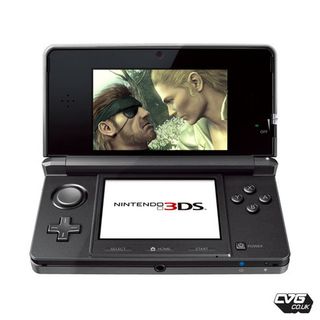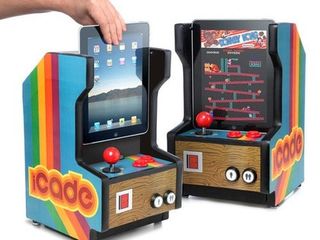3D gaming: what the future holds
How 3D games might shape up over the next decade

INVINCIBLE TIGER: Blitz Games' groundbreaking stereoscopic 3D console game
Out of all the major gaming console manufacturers, it is clearly Sony that has the most to gain from convincing gamers and TV-buyers that 3D is a viable tech for them to invest in right now.
"Sony is best placed to progress both sides of this scenario, " says Oliver, "as they have a stake in TVs, projectors, Blu-Rays, games consoles and content creation - so if anyone can get this moving it's them! And as soon as glasses-free TVs become affordable too then we'll really start to see 3D hitting the domestic mass market in a big way."
Microsoft's 3D reticence
However, over in Redmond, Microsoft appears to still be "surprisingly reticent about actively embracing 3D," argues the Blitz CTO. "They've recently updated the Xbox 360 to include stereoscopic 3D as standard so that's a great leap forward but I'd personally like to see more of a commitment in the coming year or so."

NINTENDO 3DS: The latest auto-stereoscopic 3D gaming
Nintendo is currently leading the handheld 3D charge with the recently launched auto-stereoscopic 3DS, which Oliver thinks is "a great introduction to 3D for a lot of people, but the limited screen space and the nature of the glasses-free experience on the device has sadly put some people off.
Get daily insight, inspiration and deals in your inbox
Get the hottest deals available in your inbox plus news, reviews, opinion, analysis and more from the TechRadar team.
"I think it's a great piece of kit, though, and when the content embraces 3D properly, the effects do look really cool on it - I hope that it ultimately helps people to see the potential of what 3D can bring to a gaming experience."
3D iPad gaming
The market for hardcore gaming is no longer all about the traditional three big console manufacturers, of course, with development of quality mobile and handheld gaming expanding and fragmenting at a phenomenal rate right now.
So what of the new movers and shakers in the handheld and mobile 3D gaming market? Specifically, will Apple soon embrace 3D on the iPad and iPhone?

3D IPAD 3? Apple could be the next gaming brand to push new 3D content
"Apple has been surprisingly quiet in this space and I'm actually a little surprised," says Oliver, "because they're always at the height of technology. Given there are already technologies that can display 3D with no comprise to 2D, it's surprising that they haven't exploited this yet.
"After all, an iPad that could display 3D movies perfectly, probably without glasses, would not only sell very well at a premium price, but would also sell a lot of premium-priced 3D content on the movie and app store too."
There has already been a number of 3D tablet devices announced for the consumer market, with the likes of the next Asus Eee Pad MeMo set to arrive with glasses-free 3D, which leads the Blitz Games CTO to speculate that "maybe Apple will join the fray with the iPad 3?"
Quality content and innovative design
The bottome line is this. While 3D gaming developers such as Andrew Oliver are impressed with the likes of Samsung's latest active shutter 3D TV tech and LG's latest passive polarisation offerings, he agrees that the real battle is to provide quality content and innovative 3D games design.
"It's very difficult to tell people why 3D will make such a difference to game design, although I really do believe it makes a big difference," he says.
"The problem we'll continue to face is that, until you've experienced 3D gaming done well, or good 3D content of any type, it's very easy to be dismissive of its impact. Just as when movies went into colour for the first time, 'non-believers' dismissed the new technology as unnecessary because they couldn't see what it would add to the overall consumer experience.

